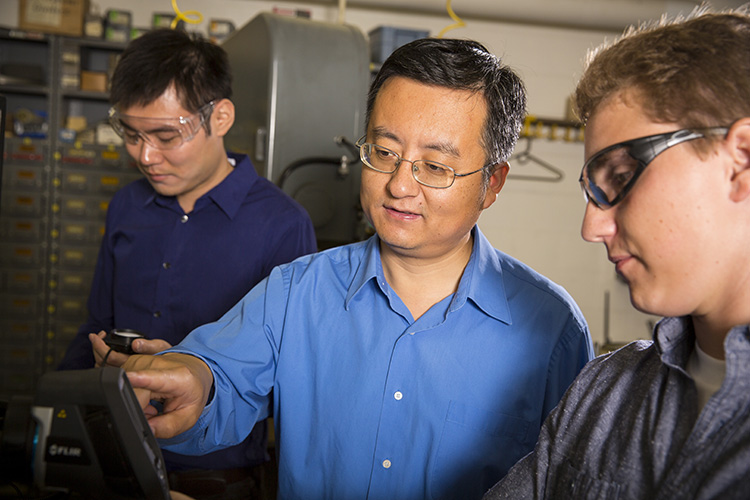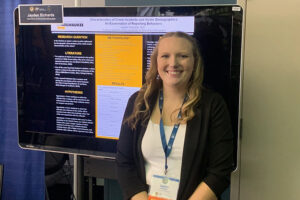Of the 24 Industrial Assessment Centers in the United States helping small and mid-size manufacturers save millions of dollars each year, the only one located in Wisconsin is based in the College of Engineering & Applied Science at UWM.
Opened in 2011, the Department of Energy-funded Industrial Assessment Center embeds a team of UWM engineering professors and students in manufacturing plants within 150 miles of campus. During a one-day site visit, the team uses engineering skills and current research to analyze plant operations. Within 60 days, a detailed report provides energy-saving recommendations the plant can implement for a reasonable cost and short payback period. The audit is provided at no cost to the companies.
In four years, UWM’s Industrial Assessment Center has audited more than 70 facilities and recommended $6.5 million in energy and operational savings – the kilowatt-hour equivalent of heating 1,000 single-family homes for one year. Manufacturing clients aren’t the only ones who benefit: Fourteen of the IAC’s 30 engineering students now have a certificate from the Department of Energy that documents their skills and number of assessments completed.
“I’ve been able to apply the concepts taught in the classroom to real-world applications and improved my ability to conduct research,” said mechanical engineering senior Jon Fisher, who is part of the IAC team. “This is also a great way to gain teamwork experience. That’s very important as an engineer because it is rare for only one engineer to work on a project by himself.”
Midwestern utilities provider We Energies refers small and mid-size manufacturing plants to the IAC to reduce demand on the electrical grid. This year, UWM Chancellor Mark Mone will present an award to We Energies Chairman and CEO Gale Klappa (’72 Mass Communications) in recognition of stimulating business for the IAC at UWM.
This corporate referral is key, but the IAC’s technical skills and energy-saving expertise are accumulating an impressive, cost-effective track record that stands on its own. Last year, the audited plants implemented more than half of the IAC’s recommendations – a measure of progress that is closely tracked by the Department of Energy.
“On average, the savings that we recommend can reduce a plant’s total utility bill by 15 percent,” said Chris Yuan, an associate professor of mechanical engineering who heads the center. “For some companies, it can be as high as 30 percent or as low as 5 percent, depending on the improvements they’ve made in the past.”
Satisfied clients include GKN Sinter Metals’ Bob Harry, who received 13 cost-saving recommendations from the center. The Germantown-based plant he manages is saving about $22,000 a year after implementing just four recommendations.
“It is an extremely useful tool to have an objective evaluation of our processes and savings opportunities evaluated by an outside resource, as it opens our eyes to areas we may potentially overlook,” said Harry, the plant’s manufacturing and facility engineering manager. “We have shared these opportunities with all Wisconsin plants, and will share the savings opportunities with all other North American plants after we have documented the implementation cost and actual savings benefit.”
Junling Xie, a mechanical engineering doctoral candidate and the center’s lead student, has already conducted nearly three-dozen manufacturing plant assessments. “These audits have been very helpful in my training as a well-rounded project engineer,” he said. “I am primarily focused on heating and cooling systems, always looking for new ways to make them more energy efficient.”
The engineering team at Allcast Inc. in Allenton, Wisconsin is now exploring suggestions from him and other IAC staff.
Allcast Inc., a custom aluminum-dye casting and tooling company in Allenton, Wisconsin, implemented a few recommendations from its IAC audit. Its management team is now exploring implementation of more substantial recommendations proposed by the IAC, such as a heat recovery system, variable frequency drives and hydraulic system improvements. “They’ve opened our eyes and challenged us to keep trying to become more energy efficient and save money,” said Allcast Plant Manager John Cleary.







